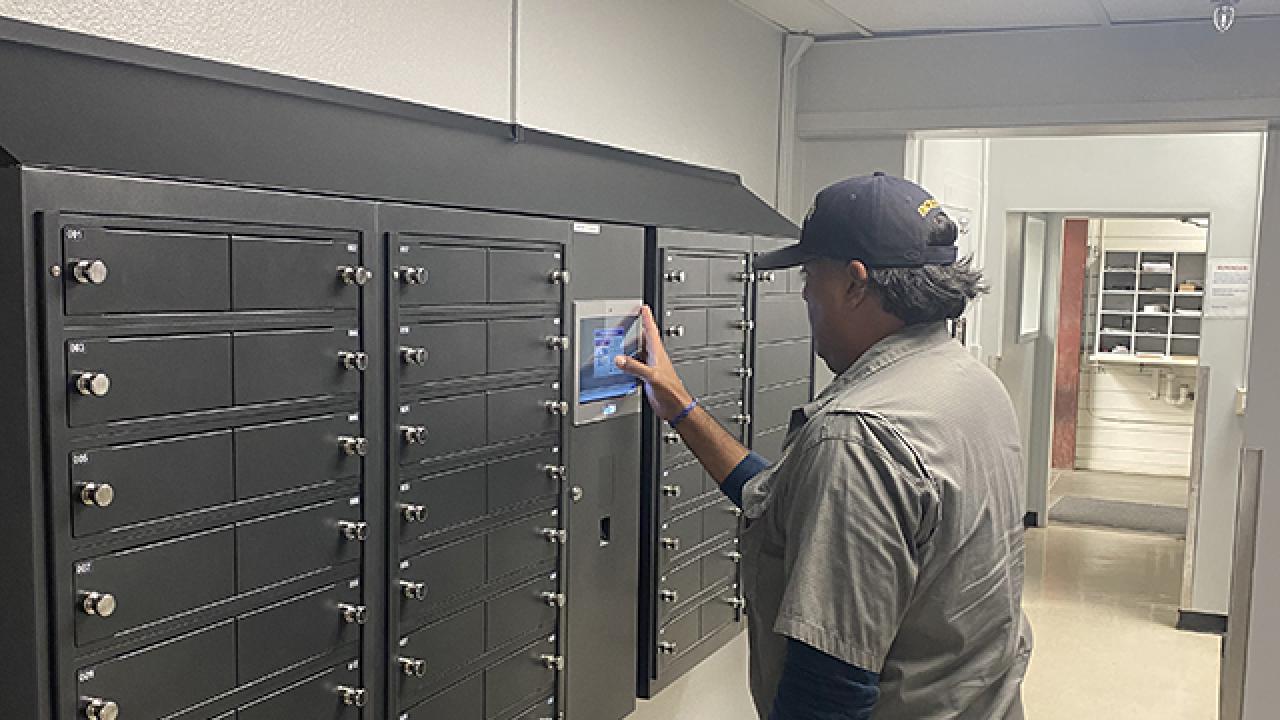
Facilities Unlocks a New Era in Key Management
Long-term solution blends traditional access with modern technology for safer, smarter operations
In an effort to modernize key management and improve overall campus security, Facilities Management, or FM, has launched a multi-phase project to replace manual key lockboxes with secure, electronic key cabinets. What began as a targeted improvement has grown into a campus-wide upgrade that strengthens safety, accountability, and operational integrity.
"Every Facilities Management employee has a set of master keys, and keeping track of those keys is absolutely critical—not just for operational continuity, but for campus security," said Inspector, Planner, Estimator Bill Lonsdale.
High-tech Key Check-out System
With funding from Be Smart About Safety, or BSAS—a UC-wide safety and loss prevention program—Facilities developed a five-phase plan to implement electronically monitored key cabinets. These high-tech units use thumbprint biometrics and fob technology to grant access only to assigned users and log key removals in real time.
Each master key ring is now linked to an individual fob, with user verification handled by fingerprint recognition—ensuring that only the designated employee can retrieve their assigned keys. Once removed, the system automatically logs the key as “checked out,” providing full visibility and improved oversight.
“With this upgrade, the only person who can access the keys is the one enrolled for that specific box,” Lonsdale explained. “It’s a huge step forward in campus security, employee safety and peace of mind.”
So far, BSAS funding has supported the installation of six electronic cabinets that securely house over 150 campus master key sets. Each master key ring—issued to Building Maintenance Services employees and Custodial Services supervisory staff—includes 26 keys that collectively provide access to nearly every door on campus.
The project has been a Building Maintenance Services team effort: the Lock Shop manages key distribution and oversees user enrollment and fob programming; the Electrical team installs power and data hookups; the Sheet Metal shop fabricates the protective shrouds for each cabinet; and, the Paint Shop completes the finishing touches.
Aggie Access vs. Physical Keys
While electronic access systems like AggieAccess continue to expand, physical keys remain a vital part of campus operations. Most of the buildings included in this smart key cabinet project do not yet have AggieAccess, and even those that do still require emergency key overrides—for use during power outages, mechanical failures, or by first responders. With the majority of campus doors still relying on traditional locks, campus master key rings remain an essential tool for daily access and operations.
This is why FM views these electronic key cabinets not as a temporary bridge, but as a long-term, dual-access solution that supports both physical and digital security. The cabinets can even provide a secure location for storing AggieAccess credentials and ID cards.
What is Next?
Phase two of the cabinet rollout was approved and funded this summer to expand installations into additional areas, including FM’s structural and specialty shops. Future phases will bring the system to remote Custodial Services sites and contractor-use areas.
This project also aligns with broader campus security enhancements, including the current AggieAccess upgrade, which is focused on four high-use buildings and nine lecture halls in the campus core.
With more phases on the way, the smart key cabinet project is already making day-to-day operations smoother and more secure. By investing BSAS funding in thoughtful upgrades, Facilities Management is helping the campus operate more reliably and safely—now and into the future.